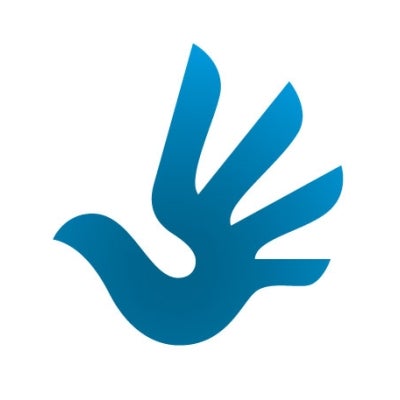Refine results
-
Sex Discrimination3 May 2021Publication

Change the Routine: Independent Review into Gymnastics in Australia
Placing the voices of children and young people and their families at the centre, this report outlines the Commission’s key findings and presents 12 recommendations for whole of sport change. -
Aboriginal and Torres Strait Islander Social Justice14 December 2012Book page
Social Justice Report 2003: PROGRESS IN ADDRESSING INDIGENOUS DISADVANTAGE – HEALTH STATUS
Track progress on addressing Indigenous disadvantage in health. -
Education17 January 2013Webpage
We all have a right to feel safe and respected
Violence, harassment and bullying are human rights issues that profoundly affect the lives of many people in Australia. We all have a right to feel safe and respected. We all have a right to live our lives free from violence. Violence, harassment and bullying can violate these rights. They can also impact on other rights, such as the right to education and the right to health. Violence,… -
Aboriginal and Torres Strait Islander Social Justice14 December 2012Book page
Social Justice Report 2003: PROGRESS IN ADDRESSING INDIGENOUS DISADVANTAGE
Track progress on addressing Indigenous disadvantage. -
Rights and Freedoms14 December 2012Project

Human Rights Briefs (1999 - 2001)
The Human Rights Brief provides legal practitioners, community advocates and others with guidance on the content and scope of human rights and fundamental freedoms in Australia and their use in Australian law. Each number will cover a specific topic. -
Aboriginal and Torres Strait Islander Social Justice14 December 2012Book page
Social Justice Report 2003: SUMMARY SHEET TWO: GOVERNMENT ACCOUNTABILITY FOR RECONCILIATION
During 2003, the government's approach to reconciliation has continued to be restricted to measures that fall within its 'practical' reconciliation approach. This has the consequence of there being a partial framework for progressing reconciliation with significant issues of unfinished business left in abeyance. The report establishes that progress in advancing 'practical' reconciliation over the… -
Aboriginal and Torres Strait Islander Social Justice14 December 2012Book page
Social Justice Report 2003: SUMMARY SHEET SIX: PETROL SNIFFING
Over the past year, there has been significant concern expressed about petrol sniffing in Aboriginal and Torres Strait Islander communities at the national level. The phenomenon of petrol-sniffing is, however, not well-understood and there is no reliable national data on the number of people involved and the extent of resulting damage to individuals and communities. -
14 December 2012Book page
Indigenous Deaths in Custody: Part E Profiles: Indigenous Deaths in Custody 1989 - 1996
Explore profiles of Indigenous deaths in custody from 1989 to 1996. -
Sex Discrimination26 March 2014Book page
Chapter 6: Principle 3: Increasing numbers requires increasing opportunities
Key findings of ADF Review The ADF Review found that the ADF’s talent pool was narrowing, while competition for workers had intensified. To enhance capability and operational effectiveness, the ADF Review found that the ADF must draw on a broader talent pool, of which women were a critical part. The ADF Review found that: There had only been a one percent increase in the recruitment of women… -
14 December 2012Book page
Close the Gap - National Indigenous Health Equality Targets
On 20 December 2007, the Council of Australian Governments (COAG) agreed to a partnership between all levels of government to work with Indigenous1 communities to achieve the target of ‘closing the gap’ on Indigenous disadvantage; and notably, to close the 17-year gap in life expectancy within a generation, and to halve the mortality rate of Indigenous children within ten-years. -
14 December 2012Book page
Close the Gap - Part 1 Background
That the governments of Australia commit to achieving equality of health status and life expectation between Aboriginal and Torres Strait Islander and non-Indigenous people within 25 years. -
14 December 2012Book page
Close the Gap - Part 1 Background
We, the undersigned, are deeply concerned that Aboriginal and Torres Strait Islander peoples have not shared in the health gains enjoyed by other Australians in the last 100 years. It is a national scandal that Indigenous Australians live 17 years less than other Australians. Indigenous Australians continue to needlessly suffer and die early, not from a lack of solutions or government commitments… -
14 December 2012Book page
Close the Gap - Part 1 Background
‘Governments can make a real difference in the lives of indigenous people by addressing social and economic disadvantage, including life expectancy, and improving governance and service delivery arrangements with indigenous people. -
14 December 2012Book page
Close the Gap - Part 2 Outcomes from the National Indigenous Health Equality Summit
Learn about the outcomes of the National Indigenous Health Equality Summit. -
Aboriginal and Torres Strait Islander Social Justice14 December 2012Book page
Social Justice Report 2003: SUMMARY SHEET THREE: COAG TRIALS
In its communique of 5 April 2002, the Council of Australian Governments (COAG) agreed to trial a whole-of-government cooperative approach in up to 10 communities or regions of Australia. Appendix 2 of the report provides a detailed overview of the structure of the trials, and progress in each trial site. -
Aboriginal and Torres Strait Islander Social Justice14 December 2012Book page
Social Justice Report 2003: SUMMARY SHEET SEVEN: ADDRESSING FAMILY VIOLENCE IN INDIGENOUS COMMUNITIES
There is no issue currently causing more destruction to the fabric of Indigenous communities than family violence. This has been acknowledged by all levels of government in recent years, with a number of significant inquiries and initiatives undertaken or commenced at the federal, state and territory level to address its impact. -
Sex Discrimination22 July 2013Book page
Chapter 3: Methodology
The Audit undertook qualitative and quantitative research and conducted an extensive review of all documentation which provided evidence of the implementation of recommendations. The Audit spoke to undergraduates, all members of the Review Implementation Team (RIT),1 members of the ADFA leadership team, military staff, academic staff, padres and international cadets. Initial interviews and…
